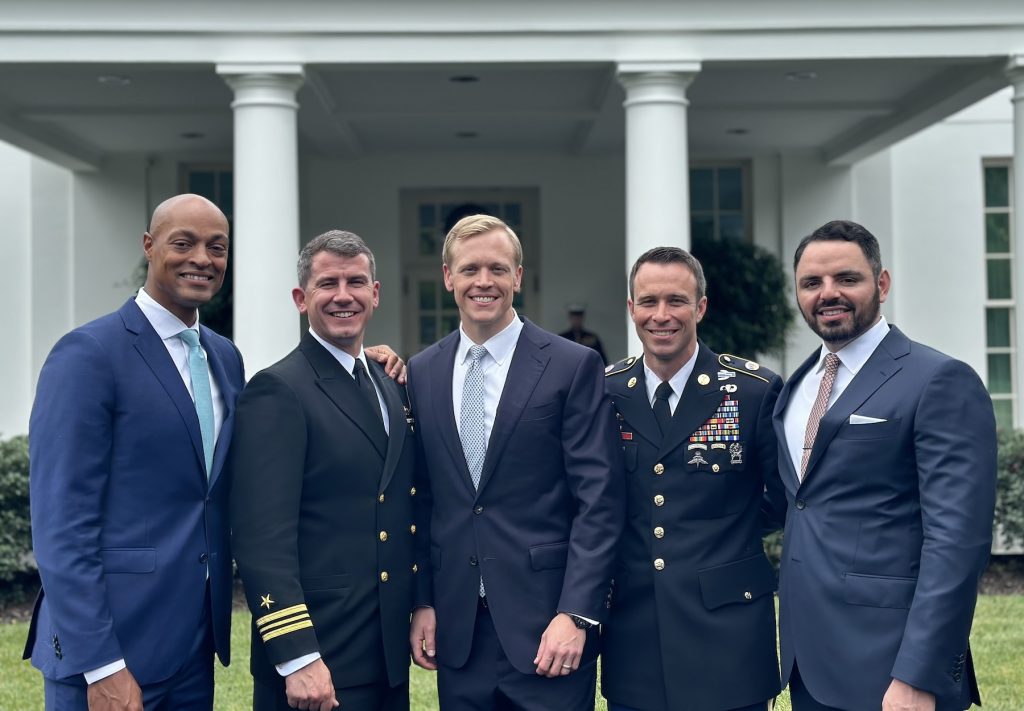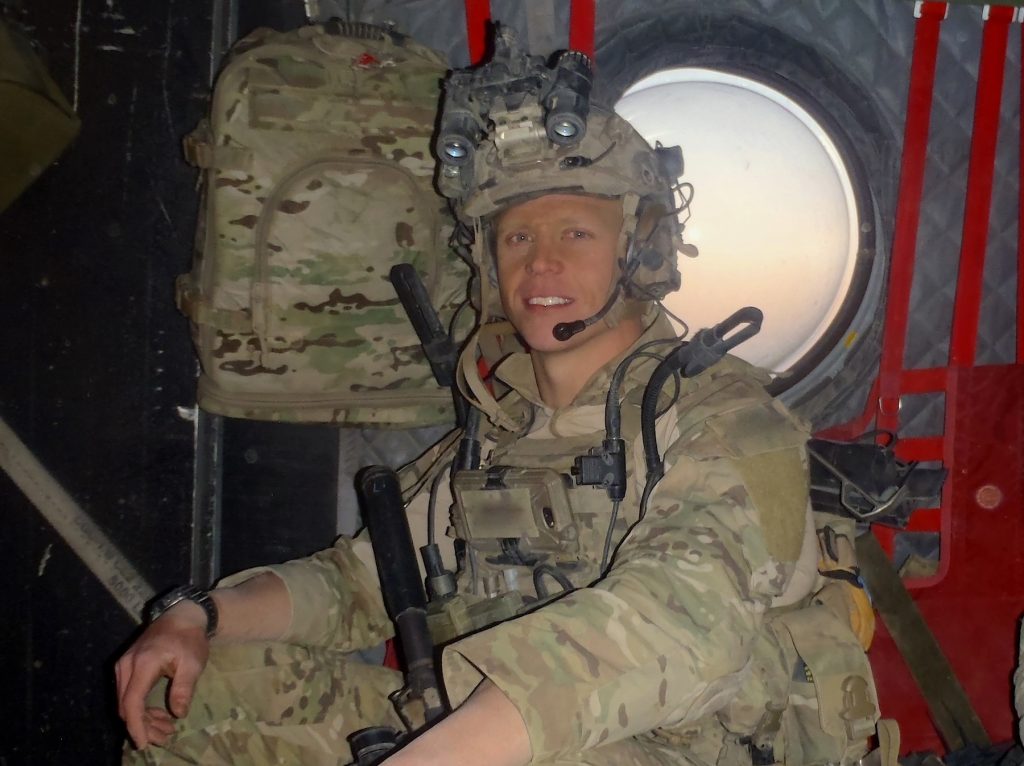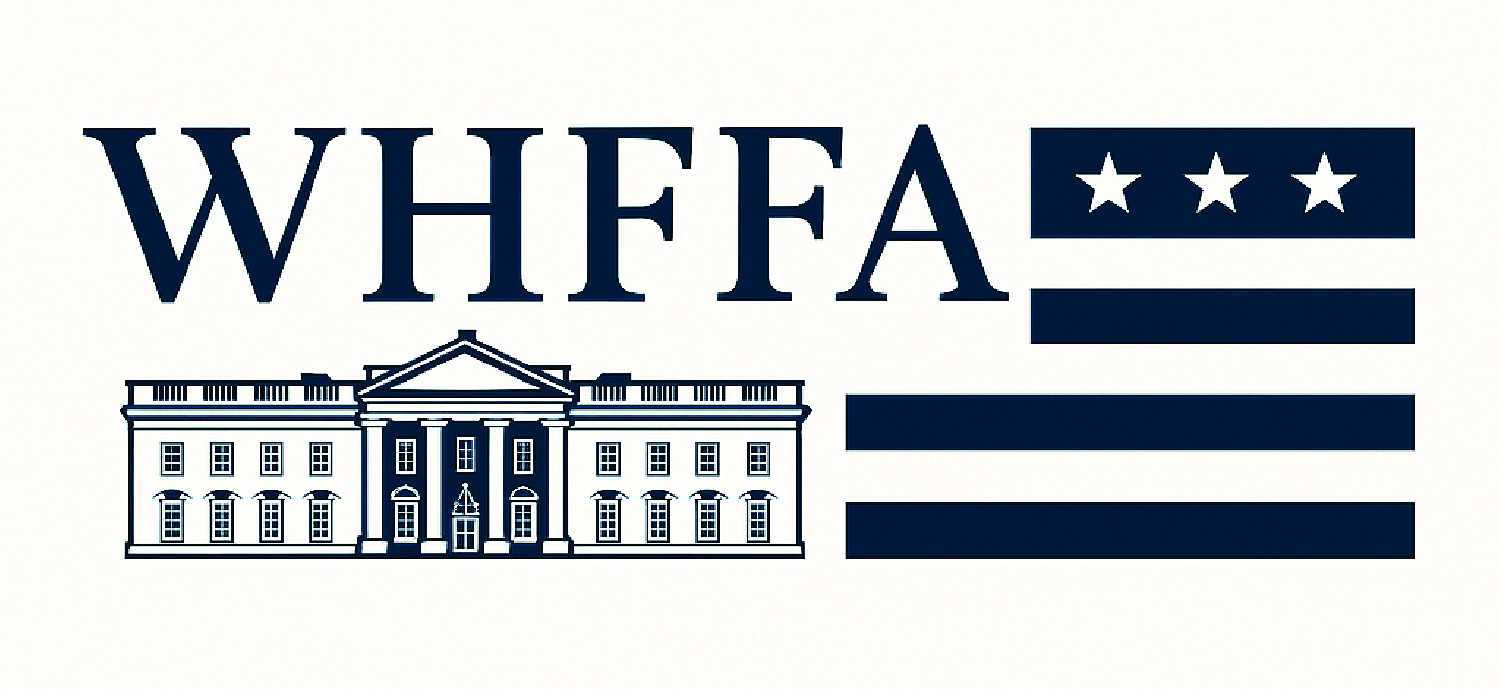WHF Profile: Sam Ayres


Can you tell us about yourself and your work before the White House Fellowship?
I grew up in Colorado and Montana but came to the East Coast for college. After graduation, I spent about a decade in the national-security world, first as a researcher and writer, and then as an enlisted infantryman in the U.S. Army’s 75th Ranger Regiment. In the latter role, I deployed several times to Afghanistan, where I led Rangers as part of a special-operations task force. After leaving the Army in 2019, I attended Yale Law School and participated in the Fellowship after graduating.
How did you hear about the White House Fellows Program and what made you decide to apply? What goals were you hoping to achieve through the Fellows program?
I first learned about the Fellowship from one of my law school professors — Lincoln Caplan — who was a Fellow in the 1979–80 class. I left the Army and went to law school hoping to pivot away from the national-security trajectory I had been on. Driving that was a desire to work on issues closer to home, especially those of particular importance to the West where I was raised and hope to return. Because I found myself at a personal and professional crossroads, Prof. Caplan urged me to consider the Fellowship: a year supporting senior leaders in the Executive Branch, he explained, would illuminate the public-service paths available and help me decide what roles I might want to pursue in the future.
His advice was spot-on — the experience offered the insights he predicted it would. It also fulfilled other related goals. Supporting and observing decision-makers clarified the professional and personal demands made of senior public servants as well as the experiences and preparation that allowed some of them to succeed. Working closely with some exemplary leaders (and crossing paths with a few not-so-exemplary ones) was a valuable education in leadership. And my role at the White House allowed me to glimpse the critical if often messy interplay among law, policy, and politics.
What was your Fellowship class like?
The Fellowship is a proudly nonpartisan institution, and the Commission sought to bring together a cohort of Americans who had walked very different paths and had profoundly different perspectives on life, politics, and the rest — but who nonetheless shared certain fundamental values. Service. Curiosity. Humility. Our class embodied that to a T. As I hoped would be the case, I learned as much about myself in conversations with them as I did from my actual “work.” I am grateful for their comradery during the year, and for the lifelong friendships that emerged from it.
What did you do immediately after the Fellowship?
I began the first of three yearlong judicial clerkships: I started on the U.S. Court of Appeals for the D.C. Circuit; am currently clerking on the U.S. District Court for the District of Columbia; and next year will clerk on the U.S. Supreme Court.
What advice would you give to prospective applicants?
I would first point prospective applicants to a webinar — “Demystifying the WHF Written Application” — in which several of us Fellows answered questions about how to approach the application. In that hourlong session, you’ll hear not just my advice but (more importantly) that of several other Fellows. I will offer or repeat just a few points here.
Remember that if you participate in the Fellowship, you do not get to decide exactly where in the Executive Branch you’re placed. The Fellowship office will try to accommodate your preferences when coordinating your placement, but you may end up working in an office or on a subject that you did not seek out. So you should apply to the Fellowship only if you truly are willing to go to any team and work on any subject, including because you feel that you would learn and grow even though — perhaps because — the issues would be unfamiliar or even unappealing. By the same token, you should not apply if you would only be happy working on one specific issue, or in one specific department, or for one specific person.
If you do decide to apply for the Fellowship, I strongly recommend that you try to put your most genuine self forward at every step. In my opinion, the essay questions are each, in slightly different ways, trying to get at what makes you tick: your values, passions, interests. That is also what the people interviewing you will be trying to coax out — and they’re typically quite good at it. Think of the essays as opportunities to explain rather than sell yourself. Throughout the application process, then, resist any inclination to provide answers that you think (or that others tell you) the interviewers want to hear. Opt instead for authenticity.
Finally, it would be a mistake to view the application process — which, no doubt, is long and involved — as a waste of time if you are not ultimately selected. To my previous point, composing the application essays and preparing for the interviews forces serious introspection. So, regardless of the outcome, you will come through the other side of the application process with a clearer understanding of what really matters to you and what you want to do with your life.
